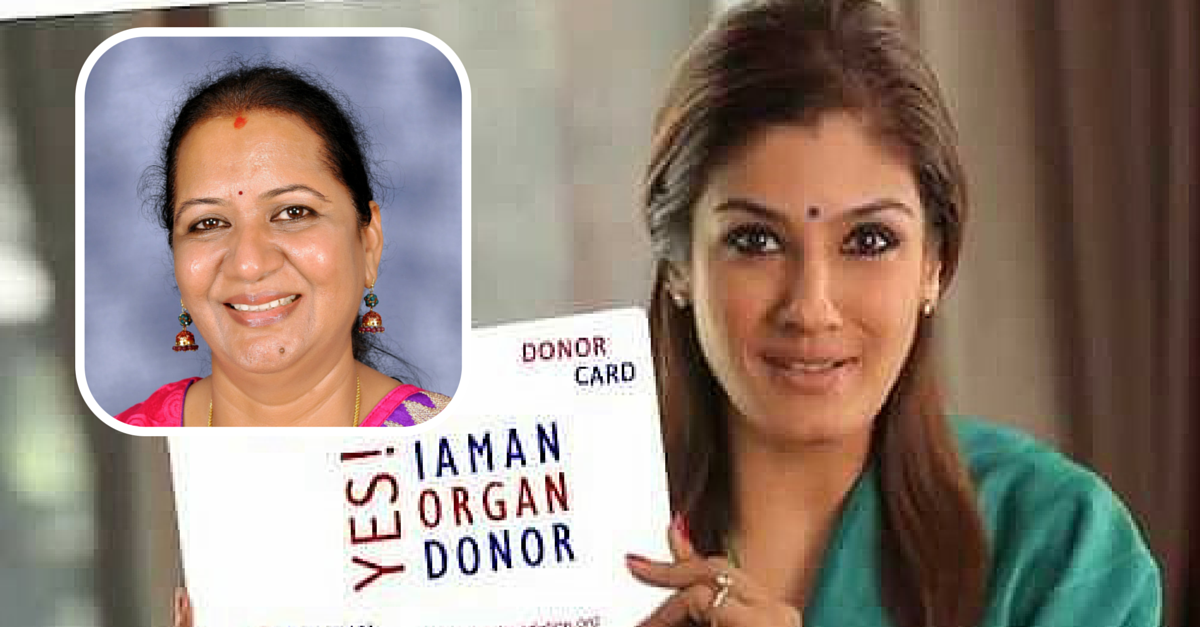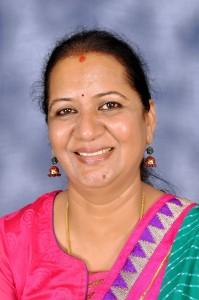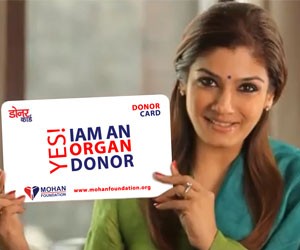How much do you know about Organ Donation? Let Lalitha Tell You More!
The knowledge regarding organ donation is extremely scarce in India. The need for it, conversely, is high. There is one woman who is trying to spread this concern and has built a system of organ donation, which spreads information, conducts counselling sessions, trains coordinators and more.

The knowledge regarding organ donation is extremely scarce in India. The need for it, conversely, is high. There is one woman who is trying to spread this concern and has built a system of organ donation, which spreads information, conducts counselling sessions, trains coordinators and more.
It is Mother’s Day, the second Sunday of May, and Spring has hit Hyderabad. Children are running into their mothers’ arms, who protectively hug them, proud of what their little ones have shaped into. However, in the midst of all the joy and celebrations, one mother is living a nightmare. Her son has been found dead. He was just nine years old. He accidentally fell down from the second floor of a building, and a local hospital declared him brain-dead. In a matter of a few seconds, the life of his family changed. On the other side of the country, another mother is in distress. Her 12-year-old daughter urgently needs a liver transplant. If she does not get it, this might be the last mother’s day they spend together. Can tragic stories such as these be seen as an opportunity to save another person’s life? This is where Ashoka Fellow, Lalita Raghuram, working in the area of organ donations and transplantations, steps in.
That fateful day, Lalitha was called by the hospital to see the young boy’s family and assist as a counsellor. Lalitha reached there and began looking for a quiet space where they could talk, as usually there are no counselling rooms in the hospital. She made them comfortable, and the young boy’s father finally muttered, “He was a very bright child.” Lalitha looked him in the eyes, listening calmly. She then met the boy’s mother. “I have seen you somewhere,” said the mother in tears. Lalitha held her hand, with a warm reassuring touch, and a few moments later, Lalitha asked her whether she has ever heard about organ donation. “I know where I saw you,” the young mother said. “I read about your story in a local newspaper. It made me cry,” she stated.

Lalitha too had lost her son in a road accident when he was just 19 years old. The two mothers, who had lost their sons, were now in the same room, understanding each other’s pain. Lalitha explained to the parents how their son was the perfect candidate for a donor and finally persuaded the young boy’s mother to give consent for liver donation, just as Lalitha herself had done after her own son’s death. She says, “If the parents cannot bring their child back to life, they can do so for other children.” No one knows this truth better than Lalitha herself. By understanding the tragic experience of the unfortunate parents, Lalitha knew how to approach them in a respectful manner, at the right time, and make the conversation as comfortable as possible. According to Lalitha, the biggest obstacle in such a situation is the lack of empathy by most everyone who the parents come in contact with later. Hospital staff is often not properly trained as to the rightful way to approach the grieving relatives. This is often a hard conversation that requires a lot of compassion and good communication skills.
Across the country, there are innumerable cases of people dying in accidents. In 2013, according to the Ministry of Road Transport and Highways, there were 1,37,572 reported traffic-related deaths in India. While there has been a great need for organ transplants in India, the number of successful operations has been embarrassingly low. According to World Health Organization, the countries with the highest numbers of organ transplantation are the USA and European countries with the average of more than 75 organs transplanted per million population. Unfortunately, in India, that number was only 6.3 per million population in 2013 (inclusive of liver transplants).
This is the core issue Lalitha wants to tackle. Drawing on her own experience, she decided to build a system for organ donation in India. In 2002, she opened the first chapter of MOHAN Foundation in Hyderabad with the aim of educating the public on organ donation, providing counselling for the families of brain-dead patients, and train coordinators.
She envisions a world where people are aware of the importance of organ donation, citizens have access to high-quality counselling, hospital staff are well trained, and governments are creating an enabling environment for such transplantations. “It has not happened in India yet,” she adds. But with her relentless efforts, the situation is slowly improving. “From around 30 or 40 coordinators for organ transplantations available in the whole country in 2002, there are now around 500 coordinators in India”, she says. While this is a great success, Lalitha is not fully satisfied. She says that there are at least 5000 coordinators needed in the hospitals. So far the organization has trained over 800 people, and they are aiming at reaching 5000 in the next five or six years.
According to Lalitha, there is a lack of awareness among the public, as well as in hospitals. As she explains, most people do not even know in what instances organs should be donated or how this can be done. On the other hand, only around 20–25% of doctors know the process properly.
“This is simply not something students are taught at medical schools,” she says. Moreover, hospitals are often not in favour of organ transplantations, as they fear it would lend them negative publicity. But thanks to her efforts, all that is slowly changing. In 2014, there were 1150 successful organ transplantations from brain-dead donors in India, which are 620 more cases than in 2012. The numbers are increasing, and every year there are more states involved in this activity.
We should not wait for tragedies to happen to start the conversation about organ donations. There are thousands of people silently waiting for a transplant around you. The power to save lives can be in your hands. You can fill in your donor registry form today and support the work of people like Lalitha who are tirelessly fighting to give people a second chance to live. The small act of signing up as a donor can mean that any unforeseen tragedy to you can become a glimmer of hope for someone else.
This article has been written by Marusa Godina, Summer Intern at Ashoka India.
Like this story? Or have something to share? Write to us: [email protected], or connect with us on Facebook and Twitter (@thebetterindia).
If you found our stories insightful, informative, or even just enjoyable, we invite you to consider making a voluntary payment to support the work we do at The Better India. Your contribution helps us continue producing quality content that educates, inspires, and drives positive change.
Choose one of the payment options below for your contribution-
By paying for the stories you value, you directly contribute to sustaining our efforts focused on making a difference in the world. Together, let’s ensure that impactful stories continue to be told and shared, enriching lives and communities alike.
Thank you for your support. Here are some frequently asked questions you might find helpful to know why you are contributing?


This story made me
-
97
-
121
-
89
-
167












